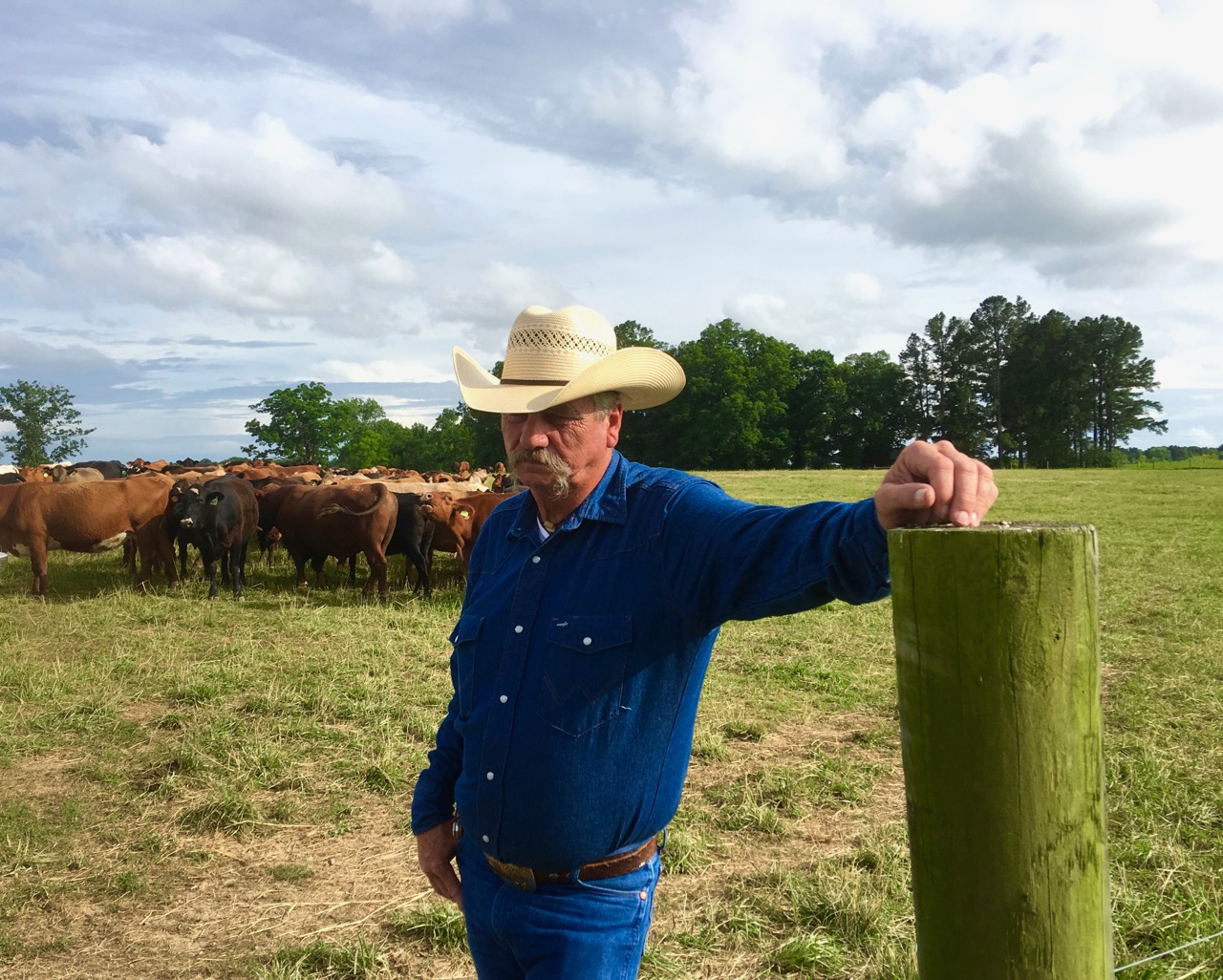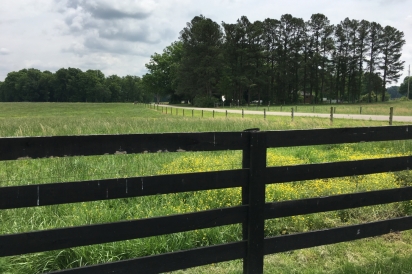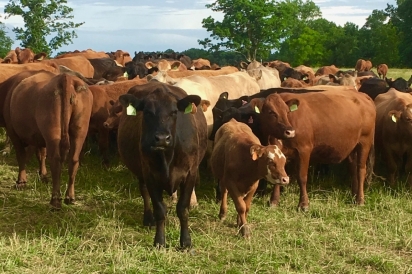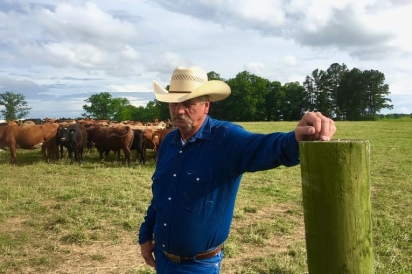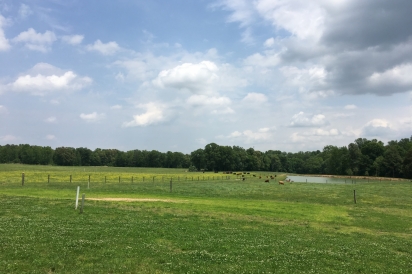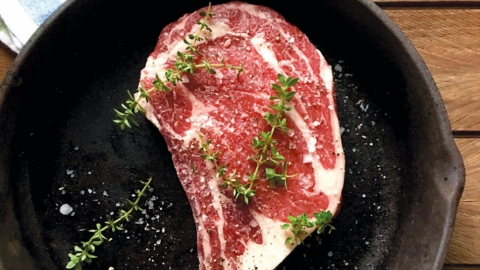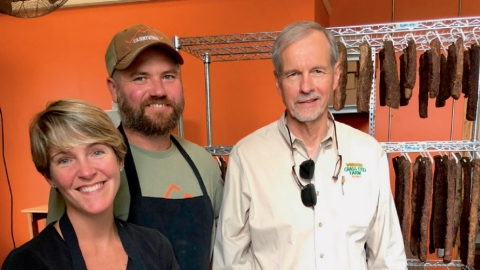Tennessee Grass Fed: Farm to Kitchen Delivery
Owners of Tennessee Grass Fed farm, Kathy and Phil Baggett’s goal is for the farm to support a healthful and enjoyable lifestyle while producing foods that are naturally delicious and nutritionally superior products for themselves, their children, and others. Being good stewards of the land and the cattle is essential to them.
The Baggett Family farm, now Tennessee Grass Fed farm, started out farming tobacco and other row crops such as corn, soybeans, and wheat. These crops required high level of pesticide and herbicide application.
Today Phil and Kathy Baggett keep it organic and pesticide free. They believe the animal protein portion of our diet should come from livestock raised on their natural diet and one not containing added hormones, antibiotics, GMOs, or other additives. For beef, that means rotational grazing on high-quality grass provided in non-confined, open pastures. Approximately 300 acres are planted in a range of warm- and cool-season grasses chosen to provide near year-round grass for the cattle to graze.
No antibiotics or hormones are ever used in producing any of their animals. Their beef is lower in both fat and calories than conventional beef as well as being higher in Omega-3 fatty acids essential for enhancing heart health.
Their pigs are pasteurized, or in their words, “They get the benefits of fresh air, sunshine and grass!” All of their hogs are raised on pasture. They are given free range of pasture and supplemented with fresh vegetables and just enough grain to supply the needed protein for growth.
The Baggett’s free-range chickens’ diet is all natural and varied, no hormones or antibiotics are ever used. Caged commercial birds can only eat what is placed in front of them; their feed often includes growth hormones, meat and bone meals, as well as antibiotics and chemicals.
Not only are the animals on the farm healthier, but their practices help keep the Earth healthy. Using effective, rotational grazing management practices and the right combination of warm- and cool-season grasses requires less input of chemical fertilizers and fossil fuels. Not feeding concentrated grains further reduces their carbon footprint to well below that of traditionally finished cattle. Feeding cattle a diet of grazed grass requires much less fossil fuel and impacts the environment in a positive manner. Tennessee Grass Fed cattle eat grass and naturally fertilize the land to grow more grass, never adding extra carbon to the atmosphere. The farm has transitioned over the years, but Phil and Kathy Baggett seemed to have found a balance that can help everyone.
Order from their Farm to Kitchen Delivery Here.
Located at 335 Williams Rd., Clarksville TN 37043
Contact the farm at 615-347-5454


